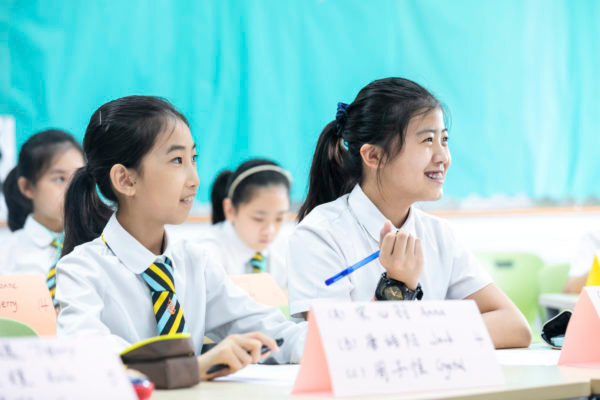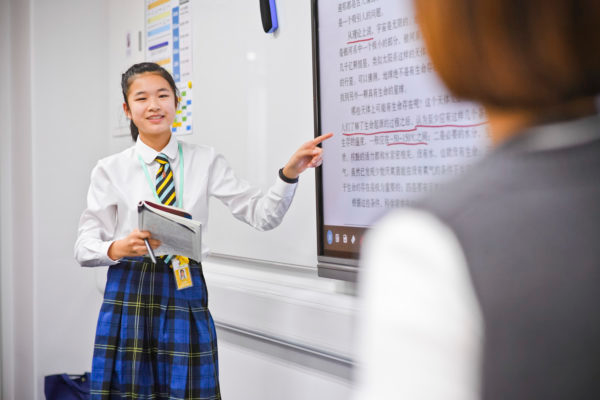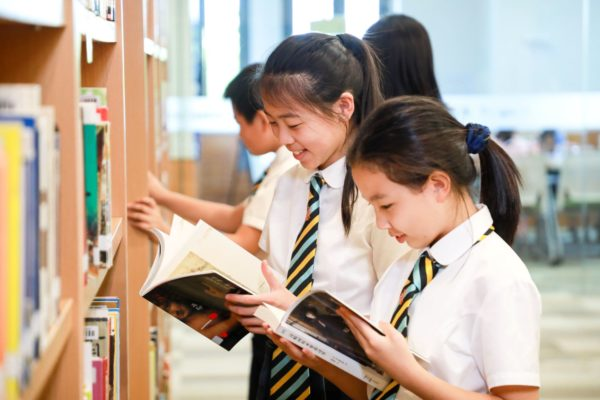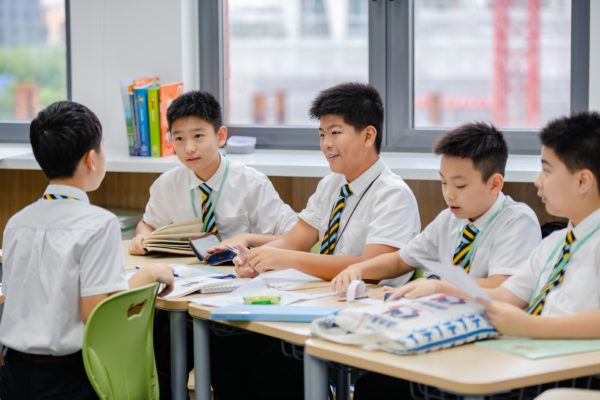General Chinese
‘General Chinese’ is a novel and cutting-edge educational philosophy in the context of our current Chinese teaching practices. This philosophy promotes the idea that Chinese teaching should centre around lessons in the class but also extend to encapsulate our pupils’ diverse lives, including their school life, household life and social life, which are all interwoven together. This approach enables pupils to develop their emotional and intellectual abilities and also gain a better command of Chinese knowledge as well as its various moral lessons.
General Chinese education explores our traditional culture in a highly respectful manner, aiming to enhance pupils’ national pride. Moreover, it also teaches them how to interpret current affairs through the lens of history while learning from both elements. Not only will this support pupils’ Chinese education, it also sets a high standard for our teachers’ own attainment and teaching abilities. At Huili, the continual improvement of our Chinese curriculum is geared towards this universal development of both teachers and pupils.
Huili’s four core competences of curiosity, global competency, collaboration and imagination are essential for pupils’ future beyond their school years, and will help them to thrive in their careers and social lives. Indeed, everything we do to develop our Chinese curriculum is aimed at giving pupils the means to excel during their academic years and beyond.
Curiosity
Sally Champagne, former senior admissions officer of Harvard University, once delivered a lecture explaining the importance of developing children
’s curiosity. She believed that curiosity pushes us to navigate the world of knowledge and keep questioning and reflecting on our experiences.
Among world top-ranking universities, one of their most important admissions criteria is that applicants always maintain this sense of curiosity.
Curiosity, as a key characteristic necessary to become an innovative learner and thinker, motivates individuals to learn more.
In our fast-paced and ever-changing society, those who solely rely on traditional life skills will likely become less competitive, but those who keep up a high level of curiosity can drive themselves to progress continuously.
In Huili
’s Chinese classes, we encourage pupils to find and solve problems, and dare to question what the textbooks write and authorities are telling them.

This
‘question and inquiry
’ model maintains their curiosity and learning enthusiasm. Meanwhile, we endeavour to break down barriers between different subjects and forge links between Chinese and sociology, art, history, geography, science and technology.
This will extend pupils
’ curiosity and interest to explore other broad fields and help them become lifelong learners.
Global competency
In order to prepare the next generation for the future, we must take responsibility for improving their global competency.
Andreas Schleicher, director for the directorate of education and skills of OECD, once made a speech entitled:
“Educating children not for the past, but for the future
”. He gave an official definition of
‘global competency
’ by considering social changes brought about by modern science and technology:
“Global competency refers to the examination of local, global and culturally significant issues; the understanding and appreciation of perspectives and world views of other; cross-cultural engagement; and the ability to take action for collective wellbeing and sustainable development.”
National Chinese textbooks cover a range of topics, such as humanistic care, environmental protection, war and peace, space exploration and much more.

Chinese lessons at Huili teach pupils to analyse all these topics from both a national and international perspective, allowing them to get used to thinking carefully and deeply about global issues and diverse cultures.
Collaboration
Collaboration is an ability and also a kind of art. Collaborating with others improves our chances of success as we support one another and work together towards a common goal.
Training children to be a good team players can help them avoid becoming self-centred and gets them into the habit of cooperating with others. This is also conducive to building a caring, loving and cooperative atmosphere at school, making children more adaptable to wider society in the process.

The ability to collaborate is always imbedded in Huili pupils
’ learning journey. In their Chinese classes, our teachers give each pupil the right and opportunity to express their own thoughts and use varying group activities, instead of relying purely on the more traditional
‘question and answer
’ mode.

In the process of completing group work, pupils learn to work out the necessary steps of a given task, assign roles, coordinate timings and communicate their opinions.
Some pupils may even be able to lead the whole project, and they should all quickly become used to discussing their approach and giving feedback to teachers. These are all important ways in which we build up pupils
’ collaboration and leadership abilities.
Imagination
Imagination enables us to
‘see what is unseen to others
’, to predict future results and to make wiser choices than what might be available at first glance.
Imagination is the ability to look at how the world is, and subsequently try to shape it to better fit our own thoughts, ideas and desires. Whether we are expressing ourselves in speech, movement or the written word, imagination is the force which brings our innermost thoughts to life.
At Huili, a variety of purpose-designed Chinese subject activities are used to expand and unleash pupils
’ imagination.
Image poems creation allows them to roam freely across the world of poetry. Scriptwriting and performing gives them a stage to physically display their imagination. Fiction writing enables them to create whole worlds from nothing. Reading reports show how the work of classic authors can resonate with pupils
’ imagination.
The most important and prominent feature of Chinese teaching at Huili is to make sure that our pupils possess the intellectual means to be imaginative, flexible thinkers with deep souls and broad horizons.
In this ever-changing era, Huili will keep focusing on instilling these four core competences in our pupils to ensure that they remain internationally competitive and well equipped for the future.




